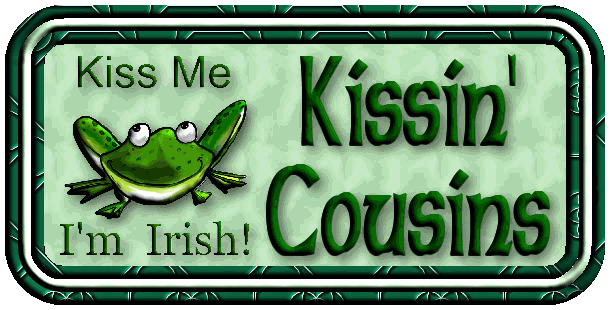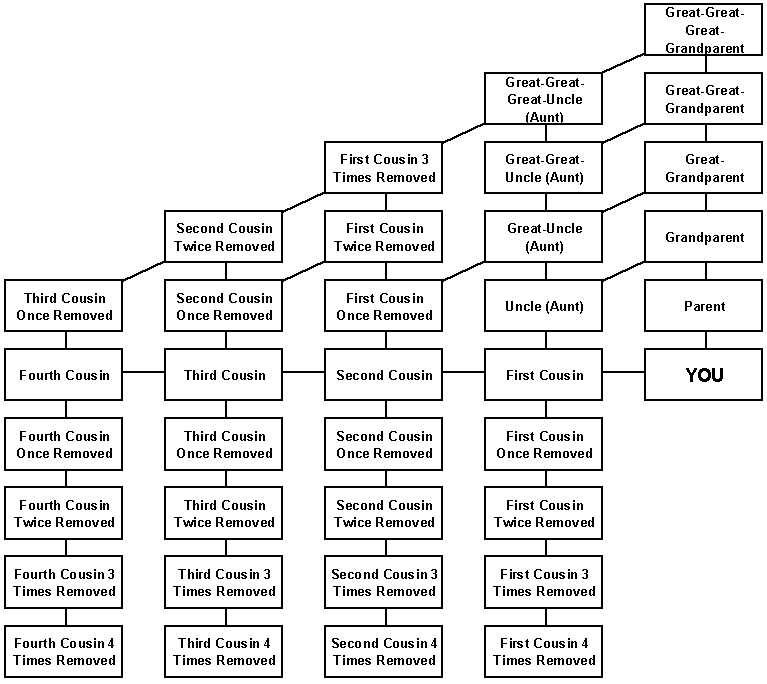
Cousins: from kissing to fourth 4 times
removed
At the time of the wedding between Prince Charles and Lady Diana Spencer,
commentators made much of the fact that Diana was a seventh cousin of the late
Humphrey Bogart—that is, they had the same
great-great-great-great-great-great-grandparents.
That’s going a bit far in tracing cousins (a still more distant pair: Queen
Elizabeth and George Washington). But most people are curious about the nearer
degrees of cousinhood in their own families. And is cases where someone dies
without a will, cousinship can be the basis for a claim on the estate. In the
years since Howard Hughes died, more than 500 people have claimed to be his
cousin, and the courts spent years trying to determine who were legitimate
heirs.
This table shows how you are related to the various levels of cousins on your
own family tree. The child of your uncle (or aunt), for example, is your first
cousin. But that cousin’s child is not your second cousin, but your first cousin
once removed.
Your second cousin can be defined in many ways, but all the definitions lead
back to the same person. A second cousin is the grandchild of your great-uncle or
great-aunt. Another way of looking at the second cousin relationship is that a
second cousin is the child of your parent's first cousin. A second cousin can
also be defined as the people in your family who have
the same great-grandparents as you, but not the same grandparents.
For other cousins, just follow the lines on the chart, noting the
relationships both up and down from where you are on the family tree.
You can make your own cousin chart by inserting relatives’ names in the boxes on
this page.





